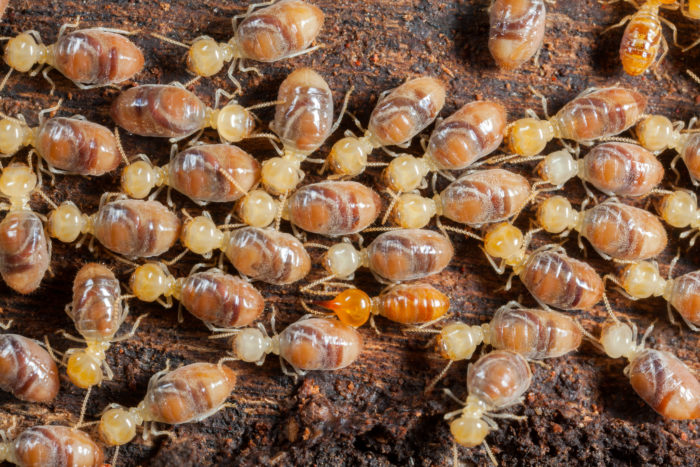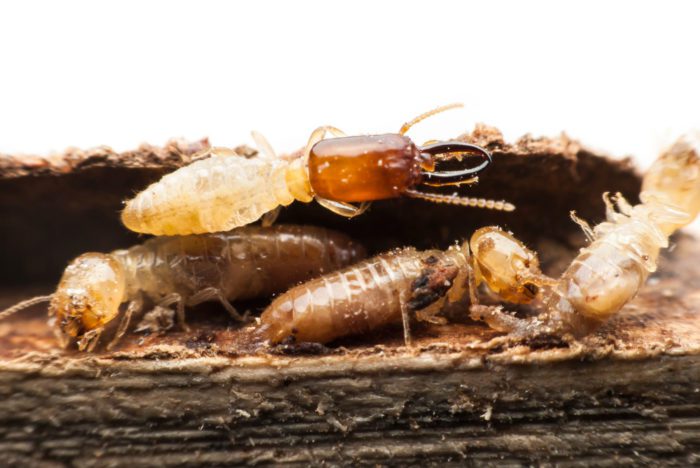Why termites vs ants? Why do we need to have a comparison among them?
Let’s find out.
Both these ants and termites are small in size, which makes them look quite similar. Ants also have members that can fly, which results in confusion between flying ants and swarms, flying members of termites.
There are even some kinds of ants that may provide damage to the wood which may appear to copy the damage brought by termites.
All these things are the reason why people often confuse ants for termites and vice versa, so it is important to have proper identification of them.
This article will cover every difference among which will include their feeding pattern, their life cycle, damage and control, everything.
Termites vs Ants: Who is Stronger?

Termites are around two to three times larger than ants. So termites could be the easy winners here but they are not. Even though after having a head that would appear built for combat, they hardly give ants a close fight.
Despite having the average size and weight, ants are very aggressive. Termites will get annihilated while fighting them.
After invading the colony, they will first kill the warriors and then will go for the queen. They drag her from the nest. All these scenes ensure the killing of a termite colony.
Difference Based on Physical Appearance
Antennae
Termites have straight antennae while on the other hand ants have elbowed or bent antennae.
Body
Termites have straight, wide bodies with no defined waist, unlike ants which have well-defined, pinched bodies. Ants’ bodies are narrow.
Wings
Both these pests have four wings but their appearance differs. Termites’ wings are equal in length and longer than their body. They are fragile and thus can fall off easily.
Flying ants’ wings are unequal in length in which the back hind wings are shorter than the front fore wings. The wings are usually proportional to their bodies.
Color
Dark colors such as red and black belong to ants. On the other hand, termites are translucent and light-colored.
Feeding Pattern and Lifecycle

- Ants are omnivores, their diet consists of food from both plants and animals. Debris from food also attracts them, this could be a reason why we see a line of ants surrounding waste from a public trash can or pet food bowl.
Termites strictly consume cellulose-rich items such as wood and paper. Drywall, cardboard, insulation wood all have cellulose in them so it is likely to find termites here.
- When talking about lifecycle, termites have an upper hand. Queen termites can live for decades while common worker termites survive for a couple of years. Their lifecycle consists of phases like egg, larva, nymph, molting, and full maturity.
Ants’ life cycle consists of phases like egg, larva, pupa, and adult. Their queen ants can live for years but when it comes down to typical worker ants, they only live for a few months.
Damage
When talking about damage to wood, you can call termites the culprits. They come to eat wood as they don’t need any other food source. Unlike ants, they do not go out in search of food, making it difficult for us to detect their presence.
Ants chew galleries into the wood to create a home. But they don’t come out for wood, instead, they look for a food source. Unprotected food is their target.
Conclusion
Whether it’s ants or termites, eliminating them is important. It’s better to call a pest control expert and eliminate the problem.
Structural damage caused by termites is not easily noticeable, so once identified, consulting a professional should be the next move.
Ants can also be hard to eliminate on your own, whether they are inside or outdoors. Pest control should be called to ensure your home ants are free.
